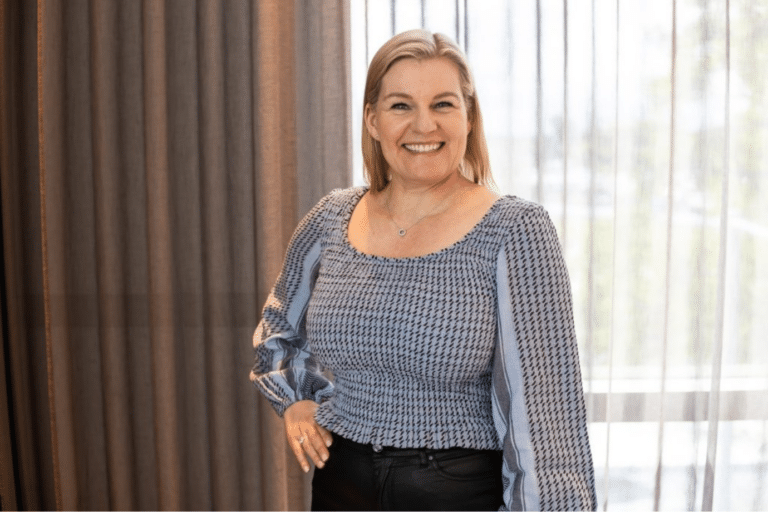It’s Occupational Therapy Week. A time we’re meant to celebrate the incredible difference occupational therapists make every day.
But this year, occupational therapists are not in the mood to celebrate. We’re exhausted, underpaid, and reaching breaking point. This OT Week, we’re saying enough is enough.
Occupational therapy is one of those quietly essential professions. We rarely get headlines and definitely don’t make a fuss. We just turn up in homes, hospitals, schools, and aged care facilities and help people recover from trauma, illness, injury, and loss of function.
But it’s time we made a fuss.
It’s time Australians, and the people making decisions about our future, understood the powerful role we play. Behind the scenes, the professionals delivering these life-changing services are being pushed past breaking point.
If nothing changes, 17,300 Australians, including 4,500 in regional and remote areas, risk losing access to care. And that’s why my colleagues and I are taking a stand this OT Week.
Together, we are releasing a video that shines a light on what these cuts really mean. Not just for occupational therapists, but for the people we support every day. It features voices from across the country sharing what happens when therapy hours are reduced, travel isn’t funded, and essential supports disappear and I urge you to watch it.
A profession on the brink
For seven years, occupational therapy rates under the NDIS haven’t budged a cent. Travel reimbursements, which make in-home and outreach care possible, have been cut in half.
Meanwhile, every other cost of doing business has gone up: fuel, rent, insurance, utilities, compliance, and administration.
The result? I have never seen so many occupational therapy businesses leaving the sector. Those who remain are tired, disillusioned, and wondering how much longer they can hold on.
The numbers don’t lie. Occupational Therapy Australia’s 2025 NDIS Provider Survey paints a devastating picture:
- 55% of providers made no profit in 2024–25.
- 14% are already planning to close their doors.
- A further 50% are actively considering exiting the sector within three years.
- 92% have had to reduce travel and outreach, and more than half now have waitlists exceeding three months.
This is not just about money. This is a system-sustainability issue.
What’s being lost
Occupational therapy gives people independence. It gives children confidence. It gives families hope. But right now, funding cuts are taking that away.
Here’s what occupational therapists from across the country had to say when we asked what those cuts look like in real life.
- “When therapy hours are slashed, community participation disappears first.”
- “When equipment trials aren’t funded, participants are left with solutions that don’t work or none at all.”
- “When funding breaks interrupt therapy, children lose skills and lose trust.”
- “Families already stretched are now forced to fight again and again for the basics. They carry the burden financially, emotionally, and physically.”
- “Funding cuts don’t just delay progress, they erase it.”
- “Loss of therapy continuity isn’t just practical, it’s psychological. Participants begin to feel: “I must not be worth investing in.”
- “Cuts to travel mean I can’t observe my participant in their real environment and without that, I can’t recommend the right supports.”
- “When I can’t provide training on new equipment, it often ends up in the shed instead of improving independence.”
- “A delay in funding for assessments means my participant is stuck navigating unsafe stairs every single day.”
- “Without enough therapy hours, my participant loses momentum and the skills they’ve worked so hard to build.”
- “And rural communities? They’re excluded entirely when travel isn’t funded.”
Behind every cut is a person. A child. A parent. An older adult. Missing the chance to thrive.
Looking ahead
And looking ahead, the picture is even more concerning.
It’s not just about cutting funding for those already in the NDIS, it’s about blocking access for those trying to get on. People are being excluded, left without the support they need, and shut out of the independence and dignity the NDIS was designed to provide. This isn’t sustainable. It’s bigger than budgets. It’s about people.
This OT Week, we’re calling on policymakers to:
- Restore fair funding for occupational therapy.
- Protect outreach and travel so we can support people in their homes and rural and regional Australians aren’t left behind.
- Co-design pricing with those who actually deliver the care.
- Ensure true accountability from the top down.
Occupational therapists want the same thing policymakers do: a sustainable, effective, efficient NDIS. But we can’t keep going under funding models that make it impossible to deliver quality care or reach the people who need us most, where they need us most.
Support occupational therapy.
Support independence.
Because everyone deserves the chance to live with dignity, safety, and hope.
Sign up for our free daily news update, for the latest news as it affects women and girls.


